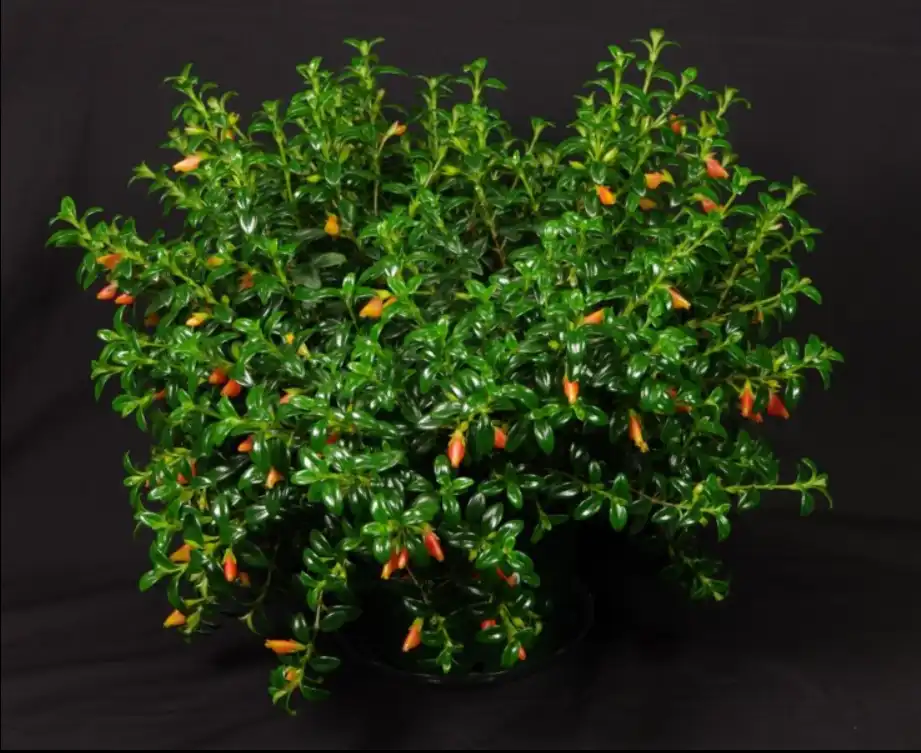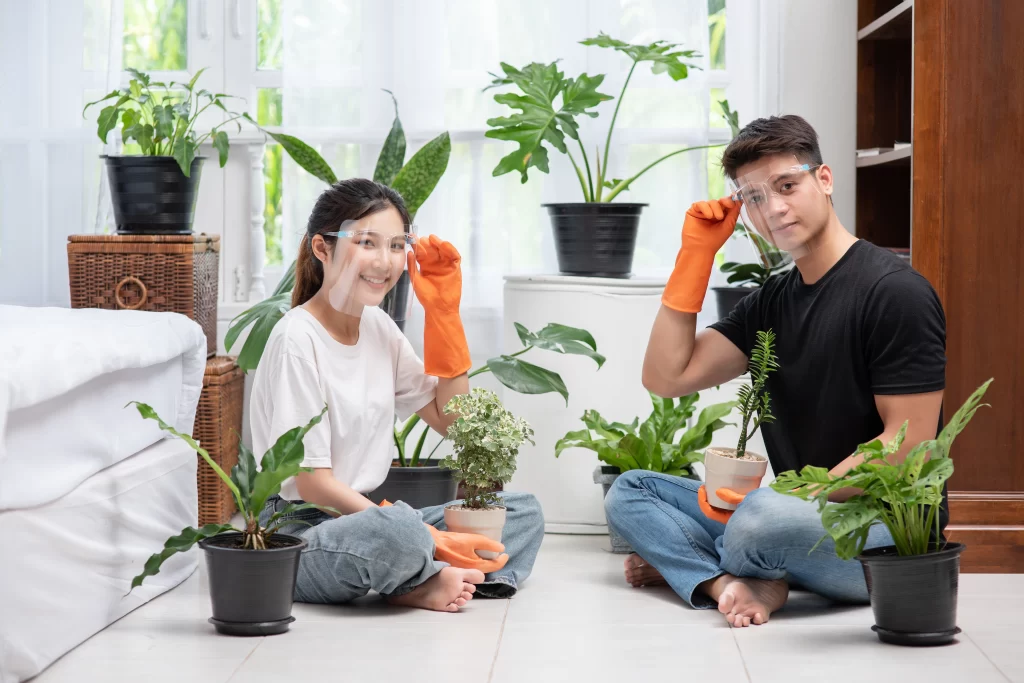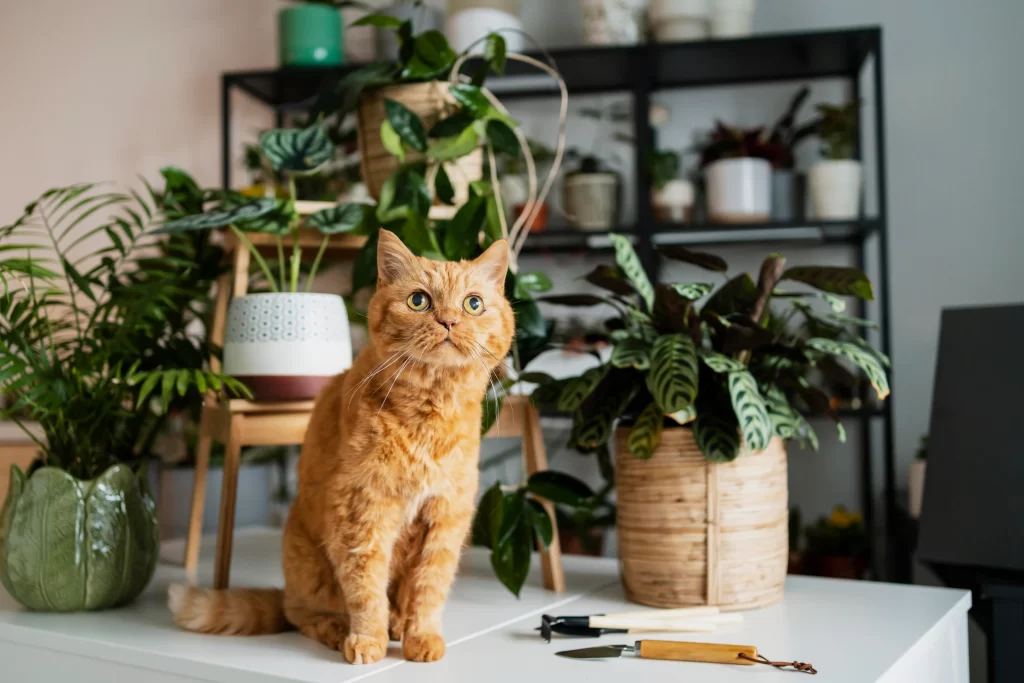Goldfish plant is not considered toxic to cats and is a safe household plant for kids and companions like cats[1]Houseplants: Safe and Toxic Varieties. Read. Columnea is a genus of flowering plants in the family Gesneriaceae. The genus includes several species commonly known as “Goldfish plants” due to the shape of their flowers. It is a vibrant and ornamental plant, not considered toxic, but most other household plants, like Wandering Jew can be harmful to cats and dogs and can lead to adverse reactions in cats, such as vomiting or diarrhea. Therefore, it is crucial to keep this and other poisonous household plants out of their reach to ensure your pet’s safety.

Read: Goldfish Plant – Care, Propagation, and Varieties
Houseplants: Safe and Poisonous Varieties
Some houseplants look nice and help clean the air, but some can be harmful, especially if you have kids or household animal companions. A toxic plant has chemicals that can make people or animals sick if they eat it. However, it is to be noted that some plants have different poisons that can cause mild to severe problems. Even if most people don’t get sick from touching or eating them, some might have reactions, so it’s best to be cautious.
Plant owners need to know about these potential problems:
- Find out what plants you have at home and check if they can harm kids or pets.
- Some poisonous plants taste bitter or weird, so kids or pets might not eat much. Still, educating them not to put unknown plants in their mouths is essential.
- If someone eats a plant, take it out of their mouth and rinse it with water.
- If you think someone ate a harmful plant, call your doctor or vet immediately.
- Check out the list of all the poisonous household plants from any reliable official source that might be harmful and life-threatening for the household companions.

Why are cats attracted to plants?
It is not uncommon for cats to occasionally nibble on plants, and there are several reasons why they might do so. Some speculate that it could be to supplement their dietary needs or to aid with digestion. Others believe that it might assist with hairball elimination, induce vomiting when they feel unwell, or could potentially be a sign of stress or anxiety. Nonetheless, it’s crucial to be vigilant for signs of plant poisoning in cats, such as vomiting, diarrhea, or other unusual behaviors.
Symptoms of Toxicity Exposure in Cats
Identifying the signs of toxicity exposure in cats is essential as it helps get timely veterinary care. However, it is essential to intervene early to improve recovery time. Common signs include:
Vomiting – Cats may vomit repeatedly after ingesting a toxic substance.
Diarrhea – Toxic exposure can lead to diarrhea, often accompanied by abdominal pain.
Lethargy – Cats may appear unusually tired or lethargic after ingesting a toxin.
Loss of Appetite – A sudden decrease in appetite can be a symptom of poisoning.
Difficulty Breathing – Some toxic substances can cause respiratory disturbance or difficulty breathing.
Drooling – Excessive drooling at the mouth may occur.
Uncoordinated Movements – Ingesting poisonous substances can affect a cat’s coordination and balance.
Changes in Behavior – Cats may exhibit unusual behaviors or become unusually aggressive.
Increased Heart Rate – Toxic exposure can lead to a drastic increase in heart rate.
If you observe these symptoms or suspect your cat has ingested a harmful substance, seek immediate veterinary care. Early intervention is vital for a better prognosis and recovery.
Read: Exploring the Myth and Magic Behind Wandering Jew Plants
Safeguarding Your Pets from Toxic Plants
Though the Goldfish plant is not considered toxic to cats, ensuring the safety of your pets around toxic Plants is essential, as houseplants like Wandering Jew can threaten cats and dogs. The well-being of your cats will be enhanced by understanding potential pet hazards and providing a secure environment. However, if you have a poisonous Plant and pets at home, follow these measures to safeguard your home pet companions:
– Place the plant in an inaccessible area to pets
– Monitor your pets’ behavior around the plant
– Train your pets to avoid the plant
– Provide alternative, pet-safe plants or toys
– Consult your vet if your pet ingests any part of the plant or shows signs of distress
– Educate yourself on the toxic components of the plant and associated pet toxicity symptoms.

Conclusion
Goldfish Plants are considered to be safe for children and other household pets. However, seek immediate veterinary attention if you suspect your cat has ingested a harmful chemical or material. An early diagnosis and treatment are crucial for a better and speedy recovery. This blog has highlighted that the Goldfish Plant is toxic to cats.



